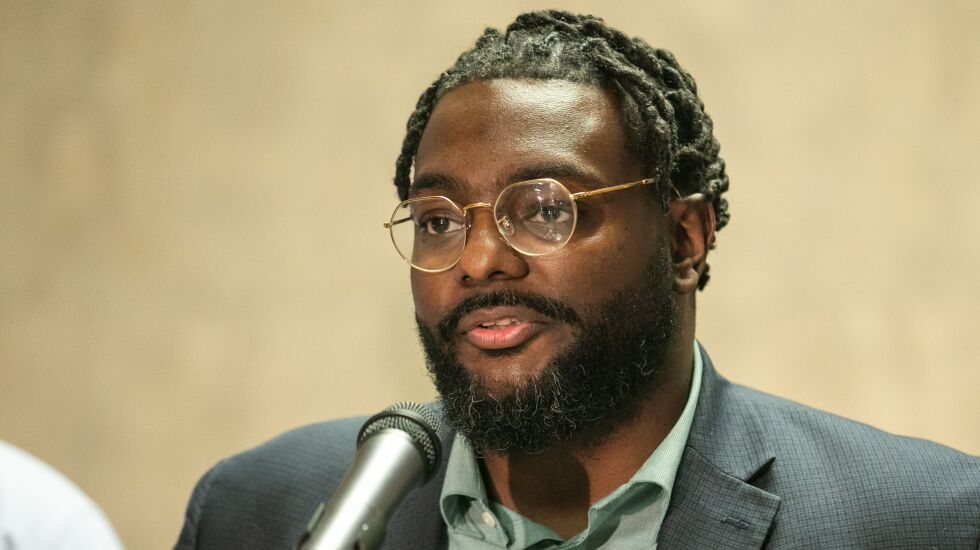
Four years ago, Mayor Lori Lightfoot went around the Police Board she once led to choose retired Dallas police chief David Brown as Chicago’s police superintendent.
Lightfoot had her eye on Brown from the moment she fired Eddie Johnson and chose him one day after receiving the list of three finalists.
This time around, there is no back-channel search or even communication with Mayor-elect Brandon Johnson or his transition team, according to Anthony Driver, president of the Community Commission on Public Safety and Accountability.
The nationwide search the fledgling civilian oversight panel is conducting for Brown’s permanent replacement is strictly on the up and up, Driver said.
“They have not tried to influence our process. They have not tried to submit names. In fact, the extent of the communication with incoming Mayor Johnson is that it’s really important that we have a robust community engagement process,” Driver told the Sun-Times.
Although Johnson has made it clear he’s determined to choose a Chicago Police Department insider as Brown’s replacement, Driver said that part of the search is also wide open.
“Our commission is completely independent. Our commission was created to inject the public’s voice into this process. So that’s who we are taking our orders from,” Driver said. “We will evaluate everybody fairly — whether you apply from somewhere outside of the city of Chicago or within the city.”
Much, but not all, of the feedback the commission gets at town halls and listening sessions favors an insider, Driver said.
“There’s also people who say they don’t want somebody from within the city of Chicago because they may have grown up in a corrupt policing system,” he said.
Sunday is the deadline for superintendent candidates to submit a cover letter, resume and five references to superintendentsearch@cityofchicago.org.
Next comes a detailed questionnaire and “multiple rounds” of in-person interviews, Driver said.
Driver was asked how the next $260,004-a-year superintendent should differ from Brown.
“Somebody who’s actually present in the communities. ... Who’s willing to bring people together. They have buy-in from rank-and-file and the brass. Buy-in from the City Council. Buy-in from different stakeholders. Somebody who’s very collaborative,” Driver said.
Brown took over at a “very turbulent time,” facing a pandemic and then civil unrest triggered by the murder of George Floyd.
“I’m not sure he actually had the foundation that he needed with residents to actually be successful,” Driver said.
“I’ve been critical in the way that his administration worked with our commission [and] different community groups. It was a very top-down approach. ... We need somebody who’s willing to work from the ground up. Who’s willing to collaborate and bring folks together. Who doesn’t always believe they’re the smartest person in the room,” Driver said.
A few years ago, Driver celebrated Father’s Day by taking his dad to a concealed-carry class — only to have his father’s permit application denied amid false claims that he was a member of the Gangster Disciples, a notorious Chicago street gang.
Driver said his father’s name was part of CPD’s gang database, even though he had never been notified of it and never been a member of a gang.
“That’s one of the first things that our commission tackled. … We’ve introduced our first general order, which brings the gang database under the commission’s purview. So anything going forward will have to come before our commission. That’s why I can say, as president of the commission, that as long as I’m here there won’t be a gang database,” he said.
“And if Mayor Johnson moves to take legislative action to completely eliminate it forever, I would 1,000 percent support that.”







